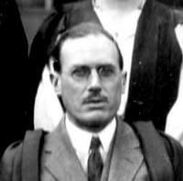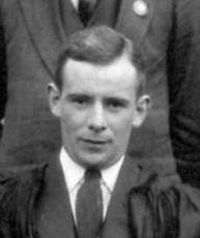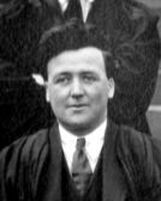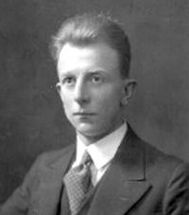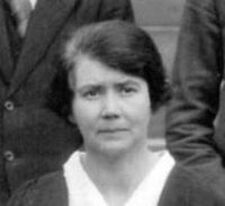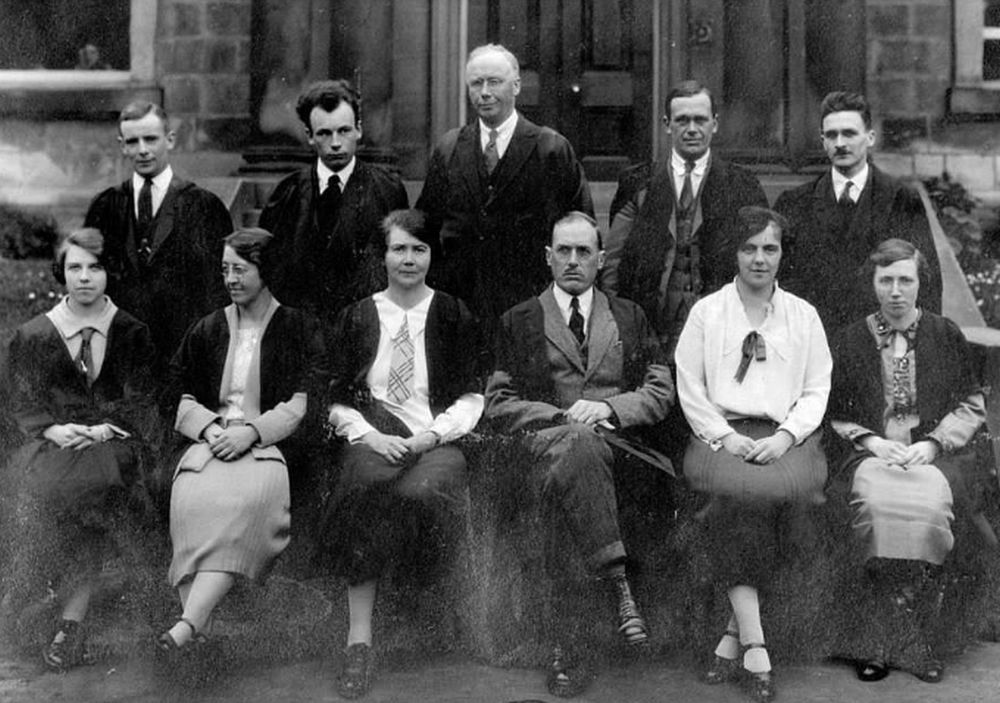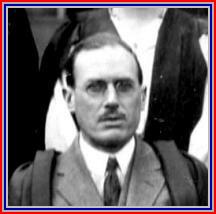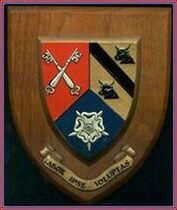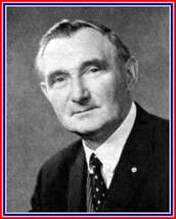Reports from the Headmaster, Mr A.G. Jenkinson
Years 1922-1925
This section from Sheila identifies some of the early issues in the development of Hemsworth Secondary School.
An historical insight (1)
Years 1922-1925
This section from Sheila identifies some of the early issues in the development of Hemsworth Secondary School.
An historical insight (1)
1922
The Headmaster's Report
The Headmaster's Report
Mr. Jenkinson stated that much had been accomplished over the previous twelve months, and the future looked promising. Opened on Nov 8th 1921 with 101 pupils, 25 of whom were County Minor scholars, the school now stood at 140, 71 boys and 69 girls, 41 of whom received scholarships or grants.
What Use is Latin ?
Digressing from his report, the head wanted to say something about the subject of Latin in school. He knew that many parents thought that Latin was a useless subject.
"Now most parents will agree", he continued, "that what they want for their children in sending them to a secondary school is a good practical education. But by 'practical' what is it they mean? I am afraid in many cases the parent understands by 'practical' subjects those whichwill enable a boy or girl to become a wage-earner quickly, but to adopt this interpretation is to miss the real meaning of education. If we only teach subjects which have an immediate cash return we shall simply turn out low grade machines doing low grade work. As a writer said:
"The liftman would work his switch no worse if he were quite illiterate, and no better if he were a doctor of science. It is not as a liftman he is worth educating, but as a man."
"A 'practical' education rightly understood then," went on the headmaster, "means an education which will fit a child for the conduct of life, train it to live interestedly and intelligently, to understand things and to know what is good and what is bad, and Latin plays its part equally with other subjects. It is true that many will forget most of the Latin they will learn and the few will carry it further. That is not the point. Mathematics and Chemistry are not taught with a view to turning out accomplished mathematicians or scientists. A boy cannot sell the knowledge of geography and history acquired at the school, but that does not mean the time spent on these subjects is wasted. The child has been taught something that trains themind, awakens latent powers and shows them how, by labour, to acquire knowledge. And if you ask me 'why can't all this be done without Latin?' the answer is two-fold: Firstly, because out of 100,000 words in the English language, no less than 60,000 are of Latin origin: secondly, Latin, by its logical precision, helps towards a habit of clear thought and expression in a way no other subject does. A teacher who did not teach Latin said: 'Latin must be kept in schools because it is the greatest training that the boy or girl can go through.' The average child's mind is a pig-sty; the child has to be taught what connected thinking is, and Latin is the only instrument that will do that. I am not going to throw over Latin for anything in the world."
"An examination held at the end of the summer term on all subjects revealed one general weakness - the inability to express clearly and concisely what was in the mind. The idea was there, but could not be produced on paper. The same criticism appeared in the reports of the different subjects - 'lack of expression,' 'no clearness of thought,' and so on. It is obvious that there are many muddled heads with plenty of good ideas in them. It is the study of Latin which will help largely to secure the clearness of expression needed."
Activities in School
Satisfactory developments had been made in games, but the need for hard play-grounds was great. There was hope that a covered building for 'drill' would be included in the proposed plans for extensions, and this large space would also be needed for the assembling of the school, as there was no room large enough for that at present. Mr. Jenkinson believed that school assemblies were the expression of the corporate being of the school. Take that away, and the soul is destroyed - the child becomes an irresponsible unit with no sense of unselfishness or self-sacrifice.
Other thriving activities included Country and Morris Dancing; Sports; Scouting; Gardening; The School Choir, (which was to compete at the Pontefract Music Festival the following April); Reading in the well-stocked library, and a Drama Company. A School Magazine was to be launched during the next term, and lantern lectures begun.
The efforts of Mr. and Mrs. Manning in providing the excellent school dinners were much appreciated, and Mr. Jenkinson doubted whether any other schoolchildren were fed better or more cheaply.
The House system worked well, with competition for the Talbot Cup arousing great keenness. The Head maintained that the success of any school rested on its pupils and staff. Pupils must give their honest effort and concentration of energy, and staff their efficient teaching and loyal service.
"Labor Ipse Voluptas"
"Find pleasure in the work itself" was the school motto suggested by the headmaster at the 1922 Speech Day. He made the comment that he was lucky to have colleagues who readily and with enthusiasm co-operated with his every wish. They were all united in their aims, with no friction, and he failed to understand the criticisms sometimes levelled at secondary teachers concerning the work they did. At his school, the teachers could be found voluntarily working late into the evening and deserved credit for that.
Sheila
What Use is Latin ?
Digressing from his report, the head wanted to say something about the subject of Latin in school. He knew that many parents thought that Latin was a useless subject.
"Now most parents will agree", he continued, "that what they want for their children in sending them to a secondary school is a good practical education. But by 'practical' what is it they mean? I am afraid in many cases the parent understands by 'practical' subjects those whichwill enable a boy or girl to become a wage-earner quickly, but to adopt this interpretation is to miss the real meaning of education. If we only teach subjects which have an immediate cash return we shall simply turn out low grade machines doing low grade work. As a writer said:
"The liftman would work his switch no worse if he were quite illiterate, and no better if he were a doctor of science. It is not as a liftman he is worth educating, but as a man."
"A 'practical' education rightly understood then," went on the headmaster, "means an education which will fit a child for the conduct of life, train it to live interestedly and intelligently, to understand things and to know what is good and what is bad, and Latin plays its part equally with other subjects. It is true that many will forget most of the Latin they will learn and the few will carry it further. That is not the point. Mathematics and Chemistry are not taught with a view to turning out accomplished mathematicians or scientists. A boy cannot sell the knowledge of geography and history acquired at the school, but that does not mean the time spent on these subjects is wasted. The child has been taught something that trains themind, awakens latent powers and shows them how, by labour, to acquire knowledge. And if you ask me 'why can't all this be done without Latin?' the answer is two-fold: Firstly, because out of 100,000 words in the English language, no less than 60,000 are of Latin origin: secondly, Latin, by its logical precision, helps towards a habit of clear thought and expression in a way no other subject does. A teacher who did not teach Latin said: 'Latin must be kept in schools because it is the greatest training that the boy or girl can go through.' The average child's mind is a pig-sty; the child has to be taught what connected thinking is, and Latin is the only instrument that will do that. I am not going to throw over Latin for anything in the world."
"An examination held at the end of the summer term on all subjects revealed one general weakness - the inability to express clearly and concisely what was in the mind. The idea was there, but could not be produced on paper. The same criticism appeared in the reports of the different subjects - 'lack of expression,' 'no clearness of thought,' and so on. It is obvious that there are many muddled heads with plenty of good ideas in them. It is the study of Latin which will help largely to secure the clearness of expression needed."
Activities in School
Satisfactory developments had been made in games, but the need for hard play-grounds was great. There was hope that a covered building for 'drill' would be included in the proposed plans for extensions, and this large space would also be needed for the assembling of the school, as there was no room large enough for that at present. Mr. Jenkinson believed that school assemblies were the expression of the corporate being of the school. Take that away, and the soul is destroyed - the child becomes an irresponsible unit with no sense of unselfishness or self-sacrifice.
Other thriving activities included Country and Morris Dancing; Sports; Scouting; Gardening; The School Choir, (which was to compete at the Pontefract Music Festival the following April); Reading in the well-stocked library, and a Drama Company. A School Magazine was to be launched during the next term, and lantern lectures begun.
The efforts of Mr. and Mrs. Manning in providing the excellent school dinners were much appreciated, and Mr. Jenkinson doubted whether any other schoolchildren were fed better or more cheaply.
The House system worked well, with competition for the Talbot Cup arousing great keenness. The Head maintained that the success of any school rested on its pupils and staff. Pupils must give their honest effort and concentration of energy, and staff their efficient teaching and loyal service.
"Labor Ipse Voluptas"
"Find pleasure in the work itself" was the school motto suggested by the headmaster at the 1922 Speech Day. He made the comment that he was lucky to have colleagues who readily and with enthusiasm co-operated with his every wish. They were all united in their aims, with no friction, and he failed to understand the criticisms sometimes levelled at secondary teachers concerning the work they did. At his school, the teachers could be found voluntarily working late into the evening and deserved credit for that.
Sheila
Melvyn Thomas
Great report, especially the section concerning Latin. I look forward to reading more.
Great report, especially the section concerning Latin. I look forward to reading more.
1923
The Headmaster's Report
The Headmaster's Report
"In looking back over the history of the past school year, my general impression is one of progress and improvement in every direction - if I except building construction, the progress of which has been more evident to the imagination than to the eye". So began the speech of Mr. Jenkinson, who continued to assert that, "in work, in games, in the various side-lines of school life, and most of all, and most important of all, in character formation there has been a distinct move forward, and there has been no slipping back." The general discipline of the school was a cause of great satisfaction to all concerned. A good tradition was being established, and the children were beginning to realise that their outward behaviour was a reflection of the character within. The good name of the school was in the hands of the children, and their orderly behaviour was being noticed and commented on by people outside the school. Compared with the previous December, there were 14 more pupils in the school, which was only a small increase and probably due to local conditions which they all hoped would soon change for the better.
In his report of the previous year, he had extolled the virtues of the teaching of Latin as a way of training the mind, awakening latent powers and showing how, by labour, to acquire knowledge. This had played no small part in the considerable improvement of the powers of self-expression within the school over the past year. The current outstanding weakness of the children was carelessness which had shown itself in the July examinations. Inaccuracy in the working of mathematical papers; carelessness in reading the questions set; insufficient attention to elementary points of grammar - these were the common faults throughout the examinations, and they sprang from one common cause, a lack of determination to concentrate the mind upon the thing of the moment. "This concentration of will is a quality to which we schoolmasters attach, and rightly, I think, a very great importance. Many a career in life is ruined by vacillation and instability. If the power of concentrated effort and minute attention to detail has been acquired at school, it will not fail its owner in after life. And that is partly why it is a true dictum that it doesn't matter so much what we teach at school as how we teach it, or what we learn as how we learn it. Any subject taught in the true spirit of culture will do something towards fulfilling the aim of education.
"The aim of education should be to equip a boy or girl for the future; but he asserted that there was more to it than that. Educators should avoid allowing the teaching in school to become narrow and cramped. Learning should contribute to the fullness of life. He did not advocate dispensing with formal teaching, but would have it woven into larger schemes of culture rather than be treated separately. As an example, he felt that in English, the essential teaching of Grammar should be incorporated into the whole scheme of literature, and not ignored, as was the current trend. Unless a child had a clear idea of English Grammar, it would be very difficult to learn a foreign language. As far as the teaching of French in school was concerned, he knew that some people asked what use that would be when the child had left the school. The justification for teaching any foreign language had already been mentioned as performing a useful function, and where French was concerned, it was a modern language, and it should not be beyond the bounds of possibility for Secondary pupils to maintain an interest in, and continue their studies of this after leaving school. Perhaps reading circles could be formed among old pupils for the study of French Literature. It was well-known that as a nation, the British were more ignorant of the literature of other nations than they were of ours.
In his report of the previous year, he had extolled the virtues of the teaching of Latin as a way of training the mind, awakening latent powers and showing how, by labour, to acquire knowledge. This had played no small part in the considerable improvement of the powers of self-expression within the school over the past year. The current outstanding weakness of the children was carelessness which had shown itself in the July examinations. Inaccuracy in the working of mathematical papers; carelessness in reading the questions set; insufficient attention to elementary points of grammar - these were the common faults throughout the examinations, and they sprang from one common cause, a lack of determination to concentrate the mind upon the thing of the moment. "This concentration of will is a quality to which we schoolmasters attach, and rightly, I think, a very great importance. Many a career in life is ruined by vacillation and instability. If the power of concentrated effort and minute attention to detail has been acquired at school, it will not fail its owner in after life. And that is partly why it is a true dictum that it doesn't matter so much what we teach at school as how we teach it, or what we learn as how we learn it. Any subject taught in the true spirit of culture will do something towards fulfilling the aim of education.
"The aim of education should be to equip a boy or girl for the future; but he asserted that there was more to it than that. Educators should avoid allowing the teaching in school to become narrow and cramped. Learning should contribute to the fullness of life. He did not advocate dispensing with formal teaching, but would have it woven into larger schemes of culture rather than be treated separately. As an example, he felt that in English, the essential teaching of Grammar should be incorporated into the whole scheme of literature, and not ignored, as was the current trend. Unless a child had a clear idea of English Grammar, it would be very difficult to learn a foreign language. As far as the teaching of French in school was concerned, he knew that some people asked what use that would be when the child had left the school. The justification for teaching any foreign language had already been mentioned as performing a useful function, and where French was concerned, it was a modern language, and it should not be beyond the bounds of possibility for Secondary pupils to maintain an interest in, and continue their studies of this after leaving school. Perhaps reading circles could be formed among old pupils for the study of French Literature. It was well-known that as a nation, the British were more ignorant of the literature of other nations than they were of ours.
Activities:
As a result of Mr. Crossland's encouragement, the boys' Rugby skills had greatly improved, and several matches had been played. Many boys played 'Fives' with great enthusiasm, and it was hoped to arrange some matches during the next school year. In Cricket some excellent progress in batting, bowling and fielding had been made, thanks to the encouragement of Mr. Dickinson and Mr. Crossland. The cricket ground had improved beyond recognition, and was becoming one of the best grounds in the district. The end of term match against the parents was enjoyable, with the parents achieving a respectable victory. Hockey, Tennis and Netball were played regularly by the girls, and some tennis matches had already been arranged for the next term. A grass court was established on the cricket ground, and another court was being prepared for the next season. Athletics and Folk Dancing had been two successful activities involving all the school. The school also entered for various classes in the Folk Dancing competitions at Pontefract, and obtained five certificates. Miss Jackson and Miss Prince deserved thanks for their untiring efforts in connection with the dancers.
"A Midsummer Night's Dream" had been performed successfully in the delightful setting of the old quarry garden. The first edition of the School Magazine had been produced, and a gramophone had been acquired to encourage the appreciation of good music. Gifts of gramophone records of good music were requested. The Boy Scouts Troop lost an excellent leader with the departure of Mr. Clift, and hopes were expressed for the activities of the troop to be maintained and even increased by his successor. By the beginning of the September term, there would be a wireless apparatus installed at the school which, under the supervision of the male teachers, would facilitate much useful experimental work, as well as entertainment. The school had a National Savings Bank which was looked after by Miss Griffiths and had a growing membership.
"A Midsummer Night's Dream" had been performed successfully in the delightful setting of the old quarry garden. The first edition of the School Magazine had been produced, and a gramophone had been acquired to encourage the appreciation of good music. Gifts of gramophone records of good music were requested. The Boy Scouts Troop lost an excellent leader with the departure of Mr. Clift, and hopes were expressed for the activities of the troop to be maintained and even increased by his successor. By the beginning of the September term, there would be a wireless apparatus installed at the school which, under the supervision of the male teachers, would facilitate much useful experimental work, as well as entertainment. The school had a National Savings Bank which was looked after by Miss Griffiths and had a growing membership.
The School Library was steadily accumulating a stock of about 360 books both for reference and circulation, and thanks were due to those members of staff and pupils who had made gifts of books to the library. More donations were invited. There were 124 books on loan from the County Circulating Library, and the small reference section already included two encyclopaedias and many other interesting books.
The School Choir had participated in the Pontefract Music Festival, but had gained no certificate despite being only nine marks behind the winning choir. At the next festival, certificates were to be awarded on merit to all choirs reaching a fixed standard.
The School Gardens were still being cultivated, though they were fewer in number, as part of the grounds had been rented out. Mr. Cressey had kindly given prizes for the two best allotments.
The House Competition had been keenly contested, and won for the 1922-23 school year by Holgate with a score of 847.5 against Talbot's 841.25.
Sheila
The School Choir had participated in the Pontefract Music Festival, but had gained no certificate despite being only nine marks behind the winning choir. At the next festival, certificates were to be awarded on merit to all choirs reaching a fixed standard.
The School Gardens were still being cultivated, though they were fewer in number, as part of the grounds had been rented out. Mr. Cressey had kindly given prizes for the two best allotments.
The House Competition had been keenly contested, and won for the 1922-23 school year by Holgate with a score of 847.5 against Talbot's 841.25.
Sheila
1924
The Headmaster's Report
The Headmaster's Report
In speaking of the recent "Open Day" at the School, it is unclear whether Mr. Jenkinson was referring to the Sports and Parents' Day held on July 26th, or perhaps a separate occasion when parents had expressed to him their interest and pleasure from a visit to the School. There had certainly been a "Hemsworth Education Week" when the Open Day was taken to be a 'stocktaking' for the parents. The Headmaster welcomed the involvement of parents within the school, and stated that only with a thorough insight into the workings of the school could they achieve a successful partnership. Such visits were to be welcomed and encouraged, and he was enthusiastic in proposing an advisory committee of parents, Governors, the local education authority and the School staff which would co-operate in developing the school.
Latin
Mr. Jenkinson once again returned to the subject of the teaching of Latin in school. Latin had been dropped by some pupils in Form V to allow more time for the study of French because it had been difficult for them to learn the two languages well enough in such a new school over less than four years. He hoped to make Latin an alternative subject to Science during the year preceding the School Certificate. Although the Headmaster had not changed his opinion as to the usefulness of learning Latin, he saw that the curriculum was crowded, and choices had to be made between Arts and Sciences. Pupils wanting to take an Arts degree should continue with Latin, but on the Science side this was not so necessary. At any rate, the present situation was that modern foreign languages needed extra study time in school, and particular attention had to be paid to this.
Concentration
'Concentration' was another of the repeated themes of Mr. Jenkinson. He felt that many answers in the annual examination papers had been too sketchy and incomplete, showing that the pupils' knowledge was deficient. Only by the power of determined and concentrated effort would the pupils grasp a deeper understanding of their subjects, and this would be aided to a great extent by home lessons, where problems and meanings had to be worked out by the pupil himself with unassisted effort.
Latin
Mr. Jenkinson once again returned to the subject of the teaching of Latin in school. Latin had been dropped by some pupils in Form V to allow more time for the study of French because it had been difficult for them to learn the two languages well enough in such a new school over less than four years. He hoped to make Latin an alternative subject to Science during the year preceding the School Certificate. Although the Headmaster had not changed his opinion as to the usefulness of learning Latin, he saw that the curriculum was crowded, and choices had to be made between Arts and Sciences. Pupils wanting to take an Arts degree should continue with Latin, but on the Science side this was not so necessary. At any rate, the present situation was that modern foreign languages needed extra study time in school, and particular attention had to be paid to this.
Concentration
'Concentration' was another of the repeated themes of Mr. Jenkinson. He felt that many answers in the annual examination papers had been too sketchy and incomplete, showing that the pupils' knowledge was deficient. Only by the power of determined and concentrated effort would the pupils grasp a deeper understanding of their subjects, and this would be aided to a great extent by home lessons, where problems and meanings had to be worked out by the pupil himself with unassisted effort.
Games
Excellent progress had been made by the boys during the year, thanks to the efforts of Mr. Dickenson and Mr. Crossland. During the cricket season 11 matches were played, and seven won. The boys had shown great enthusiasm with rugby also, and much improvement was made. Of five matches played, only one had been lost, and the team was now meeting the first teams of some schools. "Fives" was also played with keenness and skill, and a pair of boys was mentioned by the Headmaster whom he felt would be a match for any pair from any secondary school in the country. High praise indeed, and yet these opposing players were hard to find. The girls were similarly praised for their progress in hockey, under the careful coaching of Miss Prince and Miss Robinson. Netball and tennis were played during the summer term, but there were no matches. There was the space for more tennis courts to be laid, and this was now a necessity.
Music
Miss Morgan Jones had been a welcome addition to the staff, as she had placed music to the forefront in the school. At the Pontefract Music Festival the choir obtained a first Class Certificate with 172 marks out of 200. Certificates had also been won for country dancing by both boys and girls at Pontefract and Leeds. The Morris Dancing of the boys had reached a very high standard.
Gramophone, Wireless and Library
The School's gramophone had proved useful for country dancing, and the appreciation of good music on wet days. It was found to be of no use in the teaching of French, owing to the poor quality of the records. The school wireless was in constant use receiving broadcasts from abroad as well as from the Home stations. Mr. Storer had spent a great deal of time in building and adding to the set which was used by both boys and girls during afternoons and evenings. Next term it was hoped to acquire a loudspeaker 'of the latest type'. The Library now contained 450 books, and the Headmaster mentioned his hope that every girl and boy would present the library with the gift of a book when they left the school. He also announced that there would be a third issue of the "School Magazine" the following term.
Thanks
Both the Staff and the Governors received the Headmaster's profound thanks and appreciation for their efforts, with Miss Griffithsand Ald. Price receiving special mention for their assistance in the running of the School - Miss Griffiths for her supervision of the girls; Ald. Price for his "guiding hand, and his strenuous support".
Sheila
Excellent progress had been made by the boys during the year, thanks to the efforts of Mr. Dickenson and Mr. Crossland. During the cricket season 11 matches were played, and seven won. The boys had shown great enthusiasm with rugby also, and much improvement was made. Of five matches played, only one had been lost, and the team was now meeting the first teams of some schools. "Fives" was also played with keenness and skill, and a pair of boys was mentioned by the Headmaster whom he felt would be a match for any pair from any secondary school in the country. High praise indeed, and yet these opposing players were hard to find. The girls were similarly praised for their progress in hockey, under the careful coaching of Miss Prince and Miss Robinson. Netball and tennis were played during the summer term, but there were no matches. There was the space for more tennis courts to be laid, and this was now a necessity.
Music
Miss Morgan Jones had been a welcome addition to the staff, as she had placed music to the forefront in the school. At the Pontefract Music Festival the choir obtained a first Class Certificate with 172 marks out of 200. Certificates had also been won for country dancing by both boys and girls at Pontefract and Leeds. The Morris Dancing of the boys had reached a very high standard.
Gramophone, Wireless and Library
The School's gramophone had proved useful for country dancing, and the appreciation of good music on wet days. It was found to be of no use in the teaching of French, owing to the poor quality of the records. The school wireless was in constant use receiving broadcasts from abroad as well as from the Home stations. Mr. Storer had spent a great deal of time in building and adding to the set which was used by both boys and girls during afternoons and evenings. Next term it was hoped to acquire a loudspeaker 'of the latest type'. The Library now contained 450 books, and the Headmaster mentioned his hope that every girl and boy would present the library with the gift of a book when they left the school. He also announced that there would be a third issue of the "School Magazine" the following term.
Thanks
Both the Staff and the Governors received the Headmaster's profound thanks and appreciation for their efforts, with Miss Griffithsand Ald. Price receiving special mention for their assistance in the running of the School - Miss Griffiths for her supervision of the girls; Ald. Price for his "guiding hand, and his strenuous support".
Sheila
1925
The Headmaster's Report
The Headmaster's Report
In his annual report, the Headmaster spoke with confidence about the increasing numbers at the school, and of how they could actually show tangible evidence of the quality of the education given to the pupils now that the first set of results had been issued in the shape of school certificates. Satisfactory progress had been demonstrated, especially for a new school.
There were now 225 pupils at the school, as compared with 184 the previous year, and of these, 166 were feepayers. The rest were student teachers and holders of scholarships and exhibitions. There were 115 boys and 110 girls, nine Forms, and a Sixth Form, added for those who wished to study for a Higher School Certificate, to be taken in 1927. A second IV Form had been added, and the current Form V would be taking their School Certificate Examinations in July.
Changes to be introduced in September 1926 would involve the introduction of Cooking for girls in Form III and possibly Form IV, and Needlework was to be extended throughout the school. The boys would study Physics as an alternative to these subjects. For boys or girls who did not see themselves staying on at school beyond Forms IV or V, alternative courses involving typing and shorthand, and book keeping would be offered to enable students to take up clerical work on leaving school. This was the germ of an idea which subsequently proved so valuable to many pupils, and was organised and supervised by Mr. Collette.
Industry and the Secondary School
Mr. Jenkinson said he was aware that schools must offer their pupils an education which would equip them for their lives when they left. They had to think of earning a living, which was important; however this was not the primary aspect of the curriculum. The requirements of the industry, trades and occupations which were open to the pupils did have to be borne in mind, but he emphasised that a Hemsworth Secondary School education would give the pupils habits of thought and a desire for knowledge which would enrich and equip them for anything. In mentioning the importance of any particular subject - Latin, Chemistry, Geography or Algebra - it was not the purpose of the study of these subjects to turn outclassical scholars, or chemists, explorers or mathematicians. It was to create men and women with a desire for knowledge and the ability and will to acquire it.
A difficulty faced by Secondary school headmasters was that for years, efforts had been made to get industrial firms to recognise the value of hiring a 16 year old who had completed the full four years of education at school, rather than 14 year olds. The employers said they could not afford to pay a 16 year old a wage which he might have reasonably expected for his age, and the schoolmasters on the other hand, maintained that the quality of work to be expected of the Secondary school boy would be far superior. If employers would establish the age of 16 as compulsory for the starting of Apprenticeships, or insist on a school certificate as a guarantee of a satisfactory education, then schools might move even closer towards assisting industry with even closer links. He said,
"I put forward this consideration in order to remove the reproach which is sometimes levelled at secondary schools that they are not in touch with the industries around them."
It might also be commented that Mr. Jenkinson, in proposing a more technical set of subjects to be studied (typing, book-keeping etc), was insuring against the reduction of the school's population due to transfers of pupils to the Middle schools.
More space needed
The rest of the school had the usual annual examinations in July. Although the results were satisfactory and the reports on various subjects were favourable, work was hampered to some extent by congested conditions in the school. Even when the new science classrooms were completed there would still be a shortage of classroom accommodation if the school continued to grow as they hoped it would. However, by the time the new science classrooms (the 'top' corridor) and the gymnasium (assembly) hall were completed he anticipated that they would be in a position which would call for the completion of the school as it was intended finally to be. This was a passing reference to the expected 'Third Phase' of the building plans, which provided for a new dining room and kitchen at the school. This was becoming an urgent necessity. Dinners were now served daily to 140 children in two sittings and the kitchen accommodation was inadequate and the atmosphere was bad.
The Middle Schools (aka 'Modern' or 'Central')
Mr. Jenkinson spoke of the concerns about the opening of a new Middle school in the Hemsworth district. Would it affect the numbers of the Secondary school? He did not think it likely, as the two types of schools were quite different, catering for different types of young people. Secondary schools provided a classical education, and Middle schools an education of an industrial type. He commented that the curriculum of his own school would equip a young person for entrance to University, giving an excellent all-round education up to the age of 16 and beyond.
Good progress had been made in games and other out-of-school activities. More tennis courts were needed, and the hope was that a hard tennis court could be made. The cricket ground had been enormously improved and enlarged. Miss Morgan Jones was encouraging great progress in Music within the school, and later in the term a production of "Twelfth Night" would be staged. There had been a few changes of staff, with Mr. Dickinson's leaving, and the arrival of Mr. Collette, Mr. Shields, Miss Hanson and Miss Shortridge, making the current complement of staff as follows:-
The Headmaster, Miss M.A. Griffiths (senior mistress), Miss Elsie Jackson, Miss E.D. Robinson, Miss M. Morgan Jones, Miss Eva Shortridge, Mr. Philip Crossland, Miss W.Hanson, Mr. James Arthur Storer, Mr. Leslie N. Collette, Mr. Robert F. Shields.
The Headmaster thanked his staff most sincerely for their splendid loyalty and untiring energy, and also tendered thanks to the parents for their continued appreciation of the school and its work.
Sheila
There were now 225 pupils at the school, as compared with 184 the previous year, and of these, 166 were feepayers. The rest were student teachers and holders of scholarships and exhibitions. There were 115 boys and 110 girls, nine Forms, and a Sixth Form, added for those who wished to study for a Higher School Certificate, to be taken in 1927. A second IV Form had been added, and the current Form V would be taking their School Certificate Examinations in July.
Changes to be introduced in September 1926 would involve the introduction of Cooking for girls in Form III and possibly Form IV, and Needlework was to be extended throughout the school. The boys would study Physics as an alternative to these subjects. For boys or girls who did not see themselves staying on at school beyond Forms IV or V, alternative courses involving typing and shorthand, and book keeping would be offered to enable students to take up clerical work on leaving school. This was the germ of an idea which subsequently proved so valuable to many pupils, and was organised and supervised by Mr. Collette.
Industry and the Secondary School
Mr. Jenkinson said he was aware that schools must offer their pupils an education which would equip them for their lives when they left. They had to think of earning a living, which was important; however this was not the primary aspect of the curriculum. The requirements of the industry, trades and occupations which were open to the pupils did have to be borne in mind, but he emphasised that a Hemsworth Secondary School education would give the pupils habits of thought and a desire for knowledge which would enrich and equip them for anything. In mentioning the importance of any particular subject - Latin, Chemistry, Geography or Algebra - it was not the purpose of the study of these subjects to turn outclassical scholars, or chemists, explorers or mathematicians. It was to create men and women with a desire for knowledge and the ability and will to acquire it.
A difficulty faced by Secondary school headmasters was that for years, efforts had been made to get industrial firms to recognise the value of hiring a 16 year old who had completed the full four years of education at school, rather than 14 year olds. The employers said they could not afford to pay a 16 year old a wage which he might have reasonably expected for his age, and the schoolmasters on the other hand, maintained that the quality of work to be expected of the Secondary school boy would be far superior. If employers would establish the age of 16 as compulsory for the starting of Apprenticeships, or insist on a school certificate as a guarantee of a satisfactory education, then schools might move even closer towards assisting industry with even closer links. He said,
"I put forward this consideration in order to remove the reproach which is sometimes levelled at secondary schools that they are not in touch with the industries around them."
It might also be commented that Mr. Jenkinson, in proposing a more technical set of subjects to be studied (typing, book-keeping etc), was insuring against the reduction of the school's population due to transfers of pupils to the Middle schools.
More space needed
The rest of the school had the usual annual examinations in July. Although the results were satisfactory and the reports on various subjects were favourable, work was hampered to some extent by congested conditions in the school. Even when the new science classrooms were completed there would still be a shortage of classroom accommodation if the school continued to grow as they hoped it would. However, by the time the new science classrooms (the 'top' corridor) and the gymnasium (assembly) hall were completed he anticipated that they would be in a position which would call for the completion of the school as it was intended finally to be. This was a passing reference to the expected 'Third Phase' of the building plans, which provided for a new dining room and kitchen at the school. This was becoming an urgent necessity. Dinners were now served daily to 140 children in two sittings and the kitchen accommodation was inadequate and the atmosphere was bad.
The Middle Schools (aka 'Modern' or 'Central')
Mr. Jenkinson spoke of the concerns about the opening of a new Middle school in the Hemsworth district. Would it affect the numbers of the Secondary school? He did not think it likely, as the two types of schools were quite different, catering for different types of young people. Secondary schools provided a classical education, and Middle schools an education of an industrial type. He commented that the curriculum of his own school would equip a young person for entrance to University, giving an excellent all-round education up to the age of 16 and beyond.
Good progress had been made in games and other out-of-school activities. More tennis courts were needed, and the hope was that a hard tennis court could be made. The cricket ground had been enormously improved and enlarged. Miss Morgan Jones was encouraging great progress in Music within the school, and later in the term a production of "Twelfth Night" would be staged. There had been a few changes of staff, with Mr. Dickinson's leaving, and the arrival of Mr. Collette, Mr. Shields, Miss Hanson and Miss Shortridge, making the current complement of staff as follows:-
The Headmaster, Miss M.A. Griffiths (senior mistress), Miss Elsie Jackson, Miss E.D. Robinson, Miss M. Morgan Jones, Miss Eva Shortridge, Mr. Philip Crossland, Miss W.Hanson, Mr. James Arthur Storer, Mr. Leslie N. Collette, Mr. Robert F. Shields.
The Headmaster thanked his staff most sincerely for their splendid loyalty and untiring energy, and also tendered thanks to the parents for their continued appreciation of the school and its work.
Sheila
Back Row L-R: Mr. Crossland, Mr. Shiells, Mr. Austin, Mr. Storer, Mr. Collette
Front Row L-R: Miss Shortridge, Miss E.D. Robinson, Miss. Griffiths, Mr. Jenkinson, Miss Morgan-Jones, Miss. Hanson
Front Row L-R: Miss Shortridge, Miss E.D. Robinson, Miss. Griffiths, Mr. Jenkinson, Miss Morgan-Jones, Miss. Hanson
